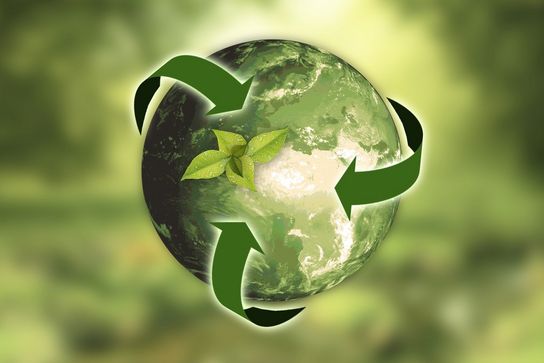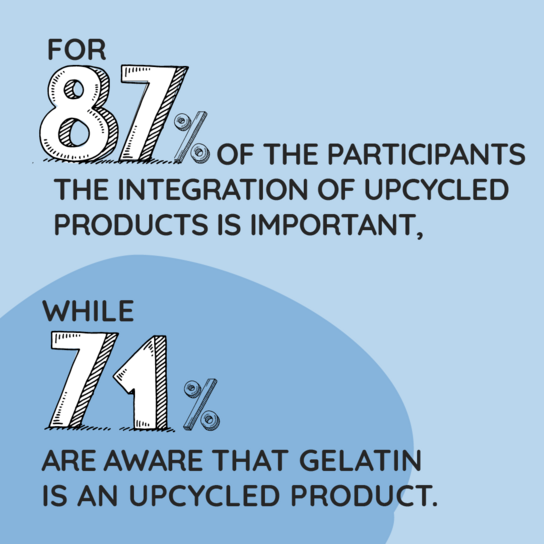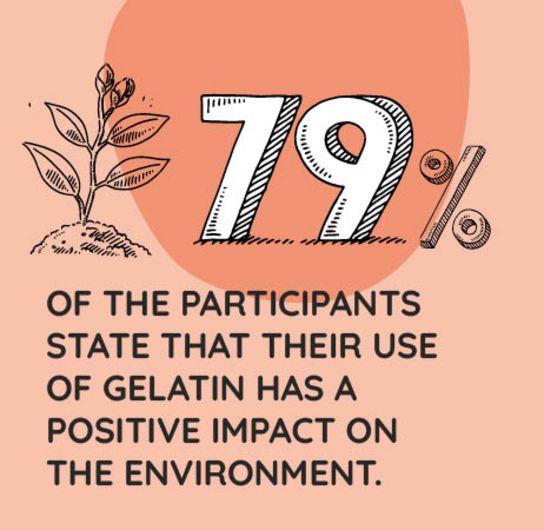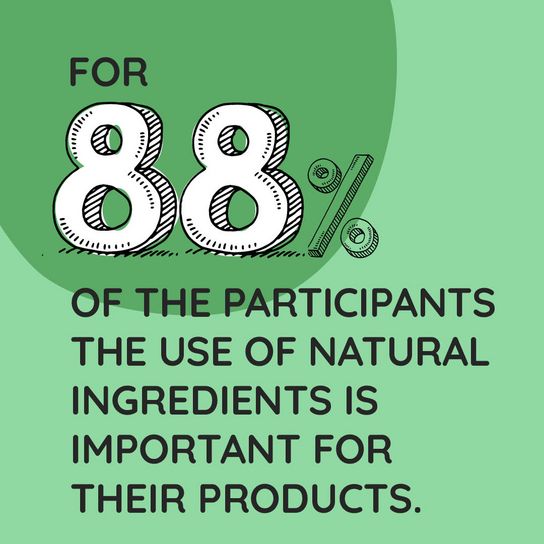Positive Environmental Impact
Derived from by-products of meat production, gelatin is a key example of an upcycled product as raw animal materials are transformed into a value-added versatile ingredient. As a natural protein, it meets the standards of clean label products, which are experiencing an increase in demand. The survey results highlight global manufacturers’ perspectives on the environmental impact of gelatin and their key considerations.

Summary
- Upcycling means converting potential waste into new, value-added, products.
- 87 percent of the survey’s participants value upcycled products.
- 79 percent acknowledge gelatin’s positive environmental impact.
- 88 percent prioritize natural ingredients.
To what extent is integrating upcycled products from/in the value chain important in your company?
The integration of upcycled products is a significant consideration for companies, with 87 percent of survey participants deeming it important. This aligns with the increasing relevance of sustainability globally. Participants were asked to rate the importance on a scale of six, from very unimportant to very important. South Korea and Brazil have the highest percentages, with 92 percent stating that upcycling is important to them. They are followed by France (88%), Germany (87%), the U.S. (84%), and Japan (79%). Upcycled products are seen as valuable across different product categories. The top segment is technical applications, where 93 percent consider upcycling important, followed by health and nutrition (92%) and gelatin-based delivery formats (91%). Other sectors like pre-cooked food, desserts, dairy, and sweets also recognize the value of upcycling, with just under 90 percent indicating its importance.

On average, 71 percent of participants are aware that gelatin is an upcycled product. It is notable that the more importance participants place on upcycling, the more likely they are to know that gelatin is an upcycled product.
In your opinion, how does your use of gelatin impact the environment?

79 percent of people believe gelatin positively impacts the environment, considering it a natural and upcycled product. Brazil leads with 89 percent, followed by South Korea at 88 percent. The U.S. stands at 79 percent, while France, Japan, and Germany each have about 70 percent approval. These numbers reflect gelatin's reputation as an environmentally friendly option.
In product sectors, gelatin-based delivery formats are favored for their environmental benefits (88%), followed by desserts (83%) and dairy products (81%). Additionally, gelatin’s sustainability and upcycling attributes are well recognized.
To what extent is using natural ingredients (no ultra-processed ingredients) important in your company?
The use of natural ingredients plays a significant role in sustainability and has a positive impact on the environment. In the survey, 88 percent of respondents agreed that using natural ingredients is either "somewhat" or "extremely" important for their company. Brazil ranks first with 95 percent of respondents indicating the importance of natural ingredients. This importance is also recognized in the U.S. (93%), South Korea (92%), as well as in France and Germany with almost 90 percent. Japan shows a slightly lower percentage at 77 percent, but still reflects the global significance of natural ingredients. Across various product sectors, the emphasis on natural ingredients remains high, averaging close to 90 percent. Pre-cooked food leads with 95 percent, while desserts and dairy have an 88 percent endorsement.

We see gelatin playing a critical role in supporting sustainability goals and demands of companies worldwide.
